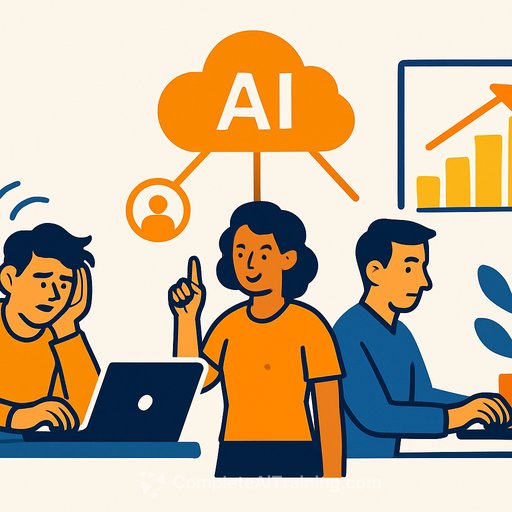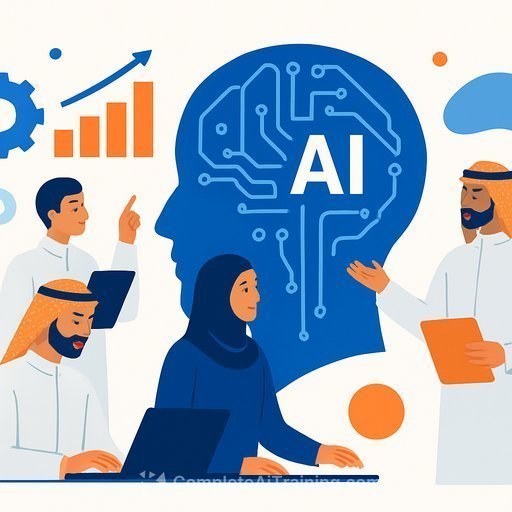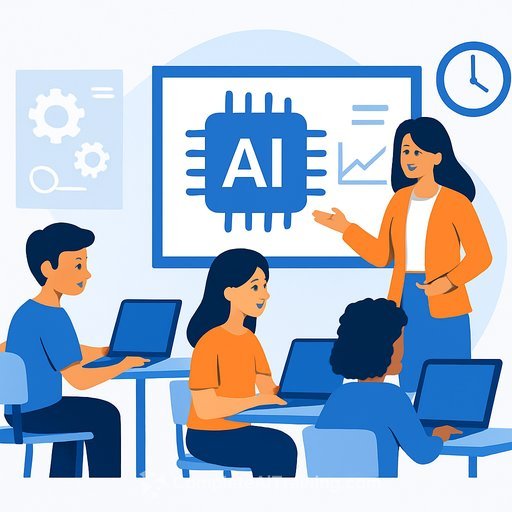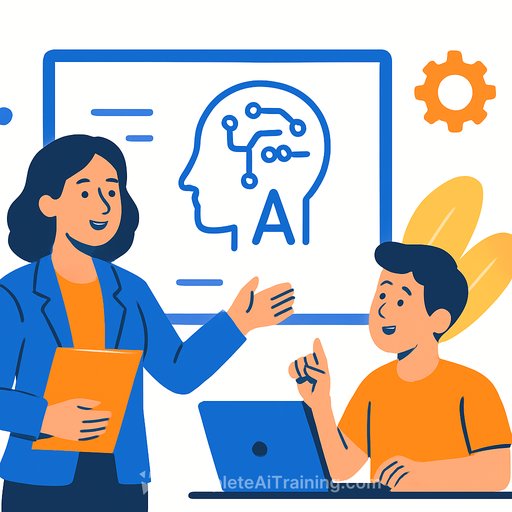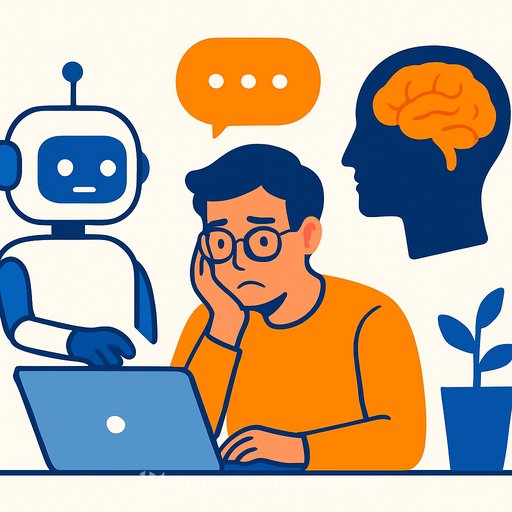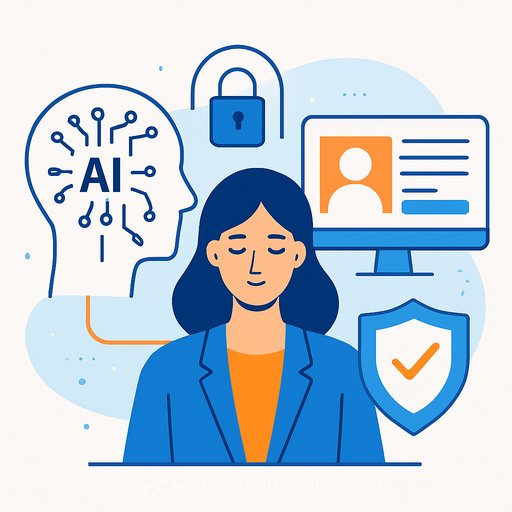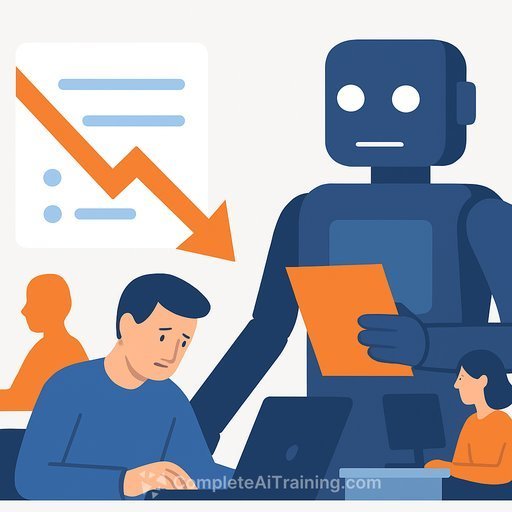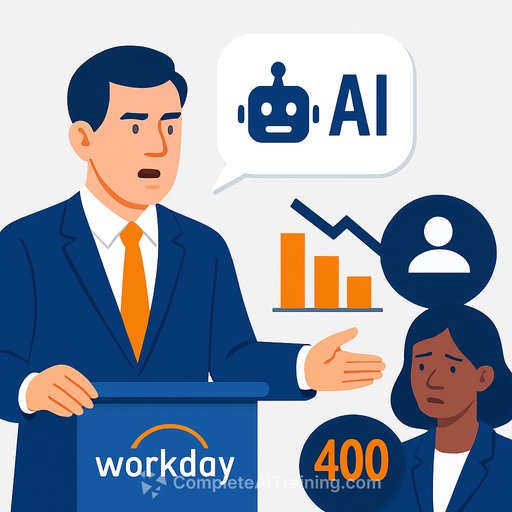Reinventing Productivity: Aligning AI Innovation With Human Potential
University of Phoenix College of Doctoral Studies has released a new white paper, "Reinventing Productivity: Aligning AI Innovation with Human Potential in the Modern Workforce." It examines why heavy AI investment hasn't consistently delivered productivity gains and offers practical steps to make AI adoption work for people-first.
The analysis spotlights a clear throughline: transparency, AI literacy, and role design built for flexibility lead to better outcomes. When workers have autonomy, training, and psychological safety, AI reduces friction instead of adding pressure.
Key findings HR and Education leaders should note
- Burnout remains high: 51% of U.S. workers report it.
- Training gap: only 34% of employers offer AI training.
- Positive impact for AI users: employees who use AI are 2.5x more likely to feel autonomy at work, and more likely to report career control and reduced burnout.
These insights draw on the University of Phoenix Career Optimism Index study and related scholarship. You can explore the Index here: Career Optimism Index.
Why productivity lags despite AI spend
- Tools are deployed without redesigning workflows, so work simply shifts-not improves.
- Most employees lack baseline AI literacy, which leads to rework, errors, and distrust.
- Top-down rollouts ignore job-level realities, causing change fatigue and burnout.
- Fear of mistakes suppresses experimentation, so useful practices never spread.
What to implement this quarter
- Make AI literacy universal. Provide baseline training by role, with short, scenario-based practice. Embed ethics, bias awareness, and data privacy from day one.
- Redesign roles, not just tasks. Remove admin work AI can handle, set weekly focus time, and update goals to measure outcomes over outputs.
- Protect well-being. Track burnout, cap low-value busywork, and set clear norms for after-hours communication.
- Increase autonomy and mobility. Use job crafting, internal gigs, and clear upskilling paths so employees can apply AI where it makes sense.
- Foster psychological safety. Encourage safe experimentation, publish "what good looks like," and remove penalties for thoughtful trials that don't pan out.
- Clarify AI governance. Be explicit about approved tools, data use, and review steps. Keep a simple decision log to build trust.
- Train managers. Coach on AI delegation, outcome-based management, and how to spot process bottlenecks AI can reduce.
Policy and ecosystem moves
- Expand access to affordable, stackable AI education with micro-credentials recognized by employers.
- Incentivize employer-provided AI training that includes ethics, privacy, and equity.
- Support public-private partnerships that give small and mid-sized organizations shared training resources.
Implications for colleges and learning leaders
- Integrate AI ethics, prompt literacy, and data literacy across programs-not as electives.
- Offer work-aligned certificates and short courses that map to specific roles and career paths.
- Measure outcomes: time saved, error reduction, and employee well-being-not just course completion.
Where to access the white paper
The full paper is available on the University of Phoenix Career Institute webpage and on the Research Hub.
About University of Phoenix
University of Phoenix helps working adults build skills for a changing market with flexible schedules, relevant courses, interactive learning, skills-mapped curricula across bachelor's and master's programs, and a Career Services for Life commitment. Learn more at phoenix.edu.
About the College of Doctoral Studies
The College of Doctoral Studies focuses on solving today's business and organizational challenges. Its Scholar, Practitioner, Leader Model places students in the center of a Doctoral Education Ecosystem with the experts, resources, and tools to apply research to real workplaces in real time.
Take action on AI upskilling
If you're building AI literacy pathways by job function, explore curated options here: AI courses by job. For quick wins and new releases, see the latest additions: Latest AI courses.
Media contact
Sharla Hooper
University of Phoenix
sharla.hooper@phoenix.edu
Your membership also unlocks:

